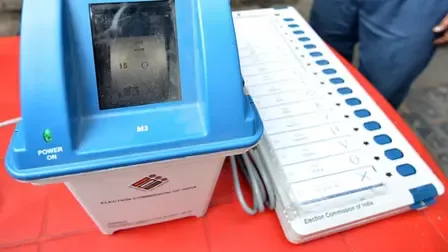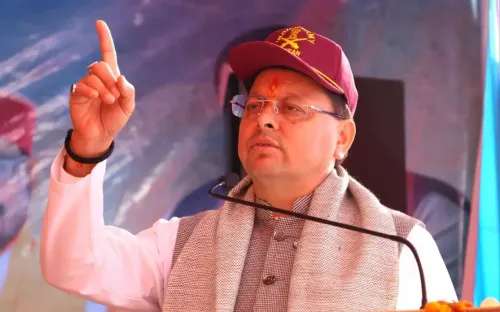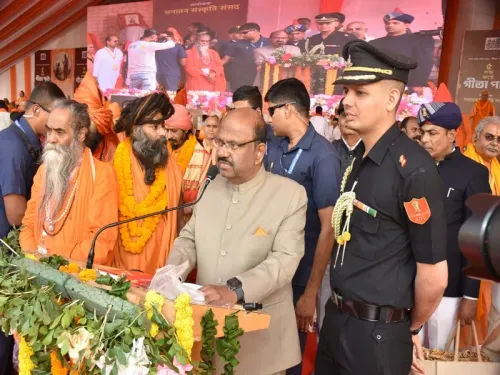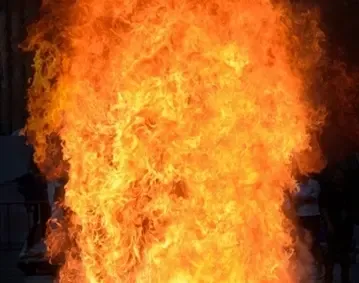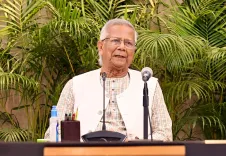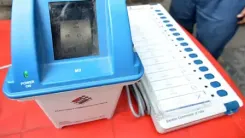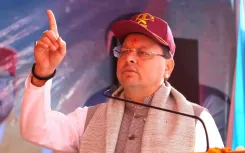Why Did the SC Criticize Haryana SIT's Investigation of Ashoka University Professor?
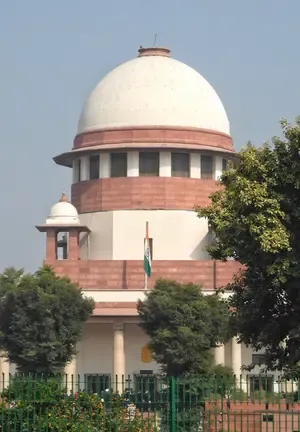
Synopsis
Key Takeaways
- The Supreme Court criticized the Haryana SIT for overextending its investigation.
- Ali Khan Mahmudabad's rights are protected amidst the investigation.
- The Court mandated that the SIT complete its inquiry within four weeks.
- Mahmudabad is allowed to express opinions on other topics, except related to the FIRs.
- The investigation focus should be strictly on the content of the social media posts.
New Delhi, July 16 (NationPress) The Supreme Court on Wednesday criticized the Haryana Special Investigation Team (SIT) for unnecessarily expanding its investigation into the two FIRs lodged against Ali Khan Mahmudabad, a political science professor at Ashoka University in Haryana, regarding his contentious social media comments on Operation Sindoor.
During the proceedings, senior advocate Kapil Sibal, representing Mahmudabad, argued that the SIT had seized his electronic devices and requested a decade's worth of his travel history. A Bench led by Justices Surya Kant and Joymala Bagchi remarked, "Why is the SIT seemingly misdirecting itself? Their task was to evaluate the nature of the social media posts. They could conclude that his article is merely an opinion and does not constitute an offense or otherwise!"
Justice Kant further questioned the necessity of seizing Mahmudabad's devices, stating, "We will summon the SIT for clarification."
When Sibal pointed out that Mahmudabad had been called multiple times by the SIT, the Apex Court mandated that he should not be summoned again.
It stated that since the petitioner has already participated in the investigation and provided his devices, further summons are unwarranted.
"You don’t need him; you need a dictionary!" the Justice Kant-led Bench remarked to Additional Solicitor General (ASG) SV Raju, who represented the SIT.
The Supreme Court dismissed ASG Raju's request to extend the investigation period by two months, instructing the high-level probe team to complete its investigation within four weeks. The Court emphasized that the SIT's inquiry should focus strictly on the language and content of the social media posts related to the Pahalgam terror attack and the nation's military response across borders.
Additionally, the Court confirmed that the interim protection granted to Mahmudabad would remain in effect.
It stated that Mahmudabad is free to write articles or express opinions on other topics, except those related to the two FIRs or recent tensions between India and Pakistan.
On May 21, the Justice Kant-led Bench directed the Haryana DGP to form an SIT composed of three directly recruited IPS officers, none of whom should be from Haryana or Delhi, to thoroughly understand the complexities of the language used in the two online posts.
"The SIT shall be led by an officer with at least the rank of Inspector General of Police, with the other two members being officers of the rank of Superintendent of Police and above. One member must be a female IPS officer. The Director General of Police is instructed to establish the SIT within 24 hours. The petitioner must fully cooperate with the investigation," the order stated.
To assist the investigation, the Supreme Court ordered Mahmudabad's release on interim bail, contingent upon his providing bail bonds as approved by the Chief Judicial Magistrate, Sonipat.
Mahmudabad, aged 42, was arrested following a complaint from Yogesh Jatheri, the General Secretary of the BJP Yuva Morcha in Haryana.
An FIR against Mahmudabad was filed under sections of the Bharatiya Nyaya Sanhita (BNS) for inciting armed rebellion or engaging in subversive activities, alongside charges similar to sedition.
In a social media post, Mahmudabad expressed: "I am pleased to see numerous right-wing commentators praising Colonel Sophi(y)a Qureishi, but perhaps they should also vocally advocate for the protection of victims of mob lynchings, arbitrary bulldozing, and others affected by the BJP’s hate propaganda, as Indian citizens. The visual representation of two female soldiers presenting their findings is significant, but optics must result in real change; otherwise, it’s mere hypocrisy."
The Haryana State Commission for Women Chairperson Renu Bhatia took suo motu notice of Mahmudabad's comments, which were alleged to demean women in the Indian Armed Forces and incite communal discord. The women's rights organization summoned the professor, but he did not appear.


